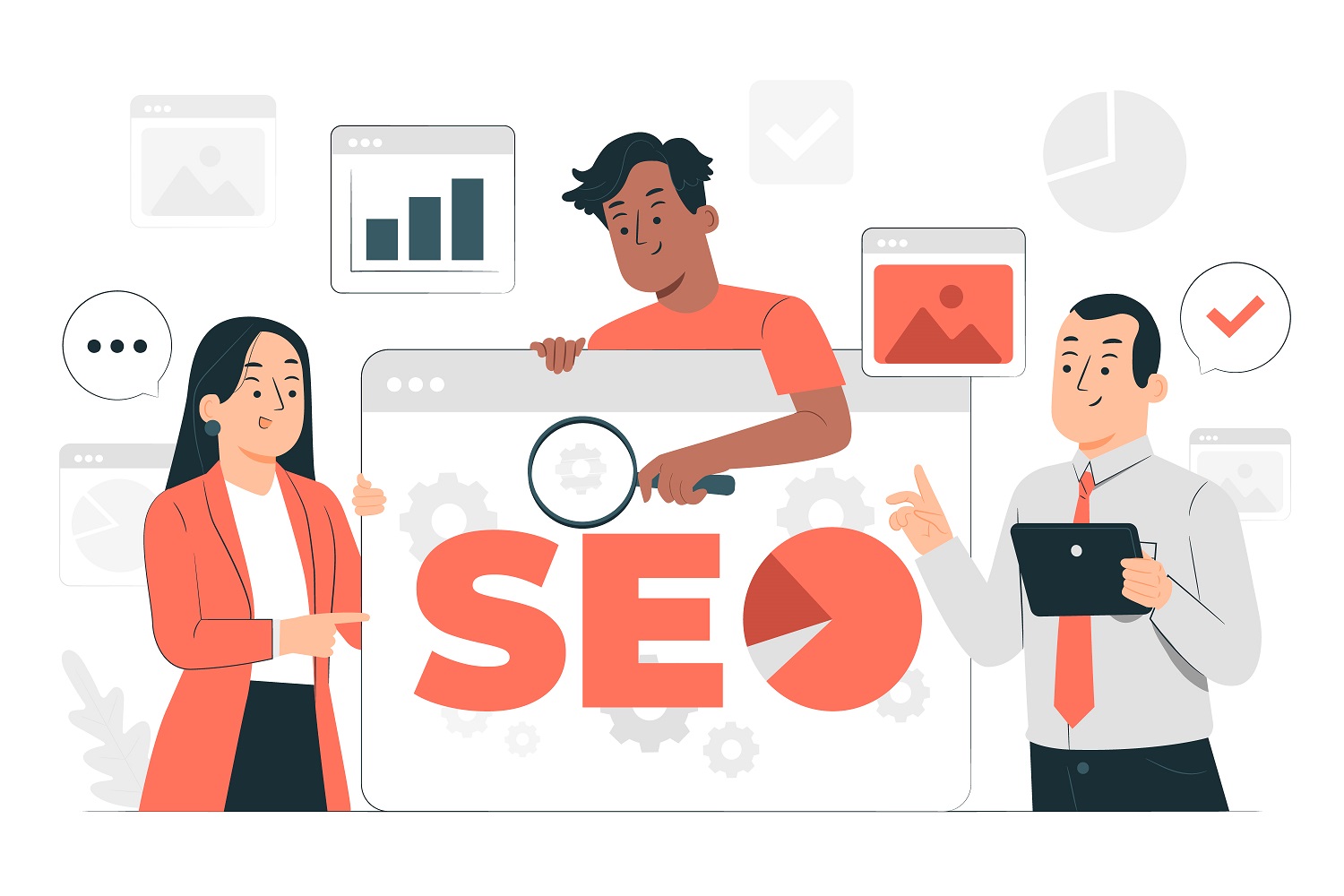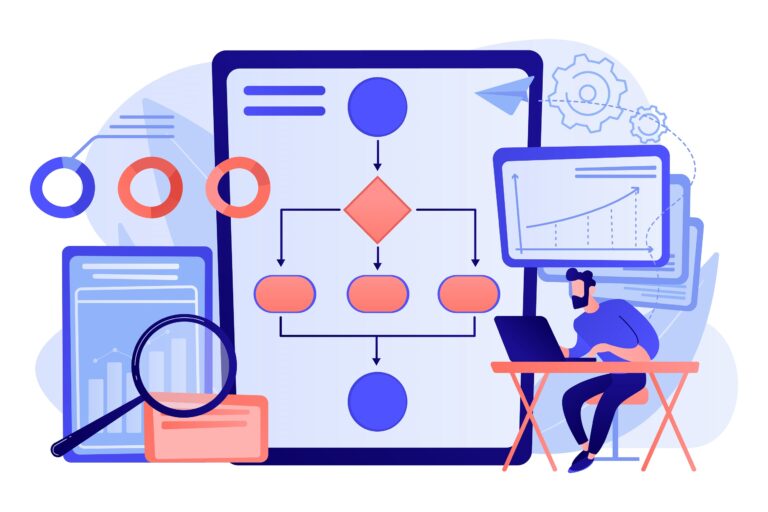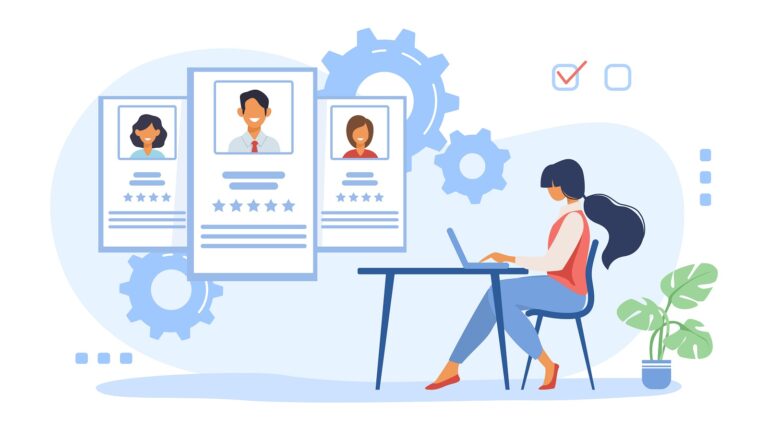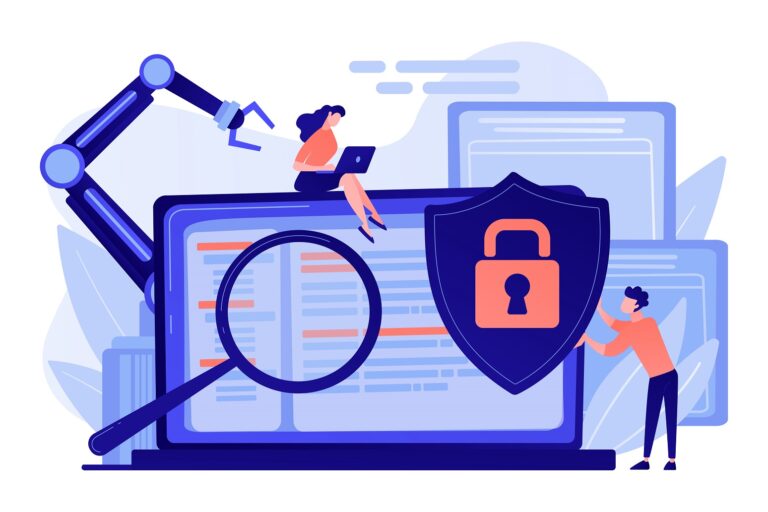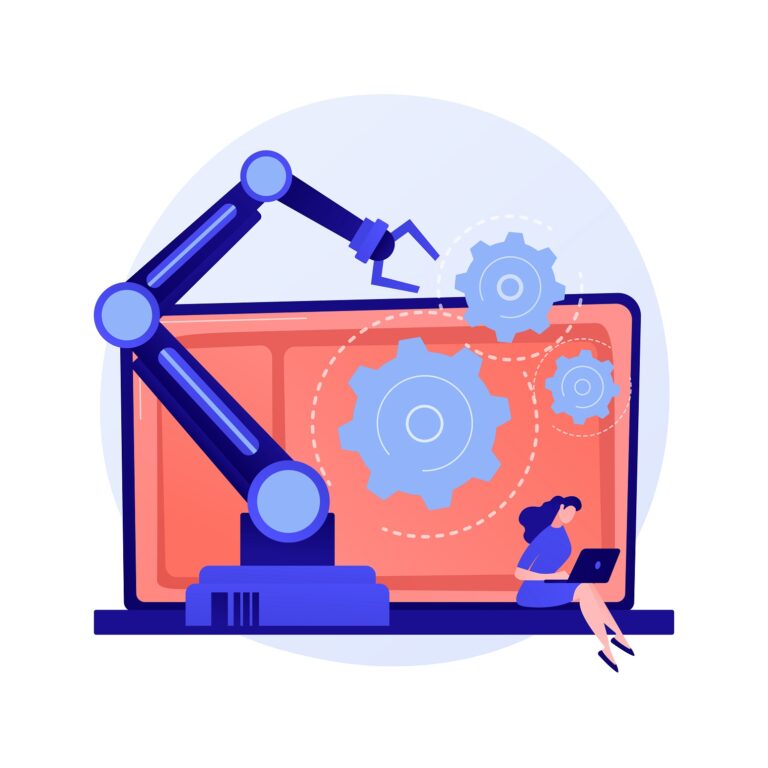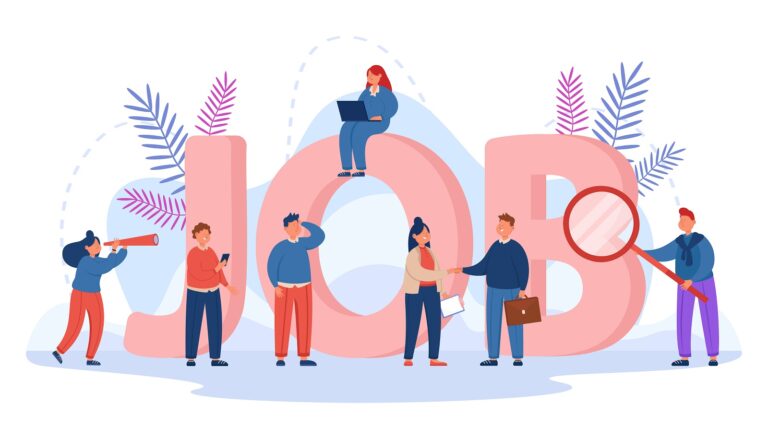How to Use AI to Improve Your SEO
In this comprehensive guide, we delve into how Artificial Intelligence can dramatically enhance your Search Engine Optimization efforts. From optimizing keywords to refining your content, improving website structure, streamlining backlink strategy, and boosting local SEO, we examine the pivotal role of AI in these crucial areas. The journey doesn’t end there – we also shed light on the future of AI in SEO, looking forward to an era where this transformative technology continues to shape and influence SEO practices.
I. Introduction
In the realm of Search Engine Optimization, the role of Artificial Intelligence has grown from being a futuristic concept to an integral part of most successful strategies. The innovative convergence of these two worlds has allowed businesses to better connect with their audience and climb the search engine rankings with relative ease.
A. Understanding AI and SEO
Artificial Intelligence, at its core, is a broad field of computer science focused on building smart machines capable of performing tasks that usually require human intelligence. These tasks include learning from experiences, understanding natural language, recognizing patterns, and making decisions. In the context of SEO, AI uses machine learning algorithms to better understand how search engines rank content. It analyzes data patterns to predict what SEO strategies will be most effective and automates repetitive tasks to save time.
SEO, on the other hand, is the practice of increasing the quantity and quality of traffic to your website through organic search engine results. It involves making changes to your website design and content that make your site more attractive to a search engine. The goal is to have your website appear on the first page of search engine results, which can significantly increase your visibility and drive more traffic to your site.
B. Importance of AI in Modern SEO Strategy
The symbiotic relationship between AI and SEO cannot be overstated. In today’s digital age, search engines like Google are increasingly using AI to enhance their search algorithms. They are continually learning and evolving, making it crucial for businesses to keep up with the pace. AI’s ability to process and analyze large volumes of data makes it possible for SEO strategies to be more data-driven, precise, and effective.
Moreover, AI can automate various aspects of SEO, freeing up time for strategists to focus on more complex tasks. From identifying optimal keywords to providing insights on content optimization, AI SEO tools can provide valuable assistance. With its predictive capabilities, AI can also anticipate future trends and changes in SEO, enabling businesses to stay ahead of the curve. In short, leveraging AI in SEO is no longer optional; it’s an essential part of modern SEO strategy.
II. Optimize Your Keywords
As we delve deeper into the intersection of AI and SEO, the importance of keyword optimization becomes increasingly clear. Keywords serve as the backbone of your SEO strategy; they are the phrases that users type into search engines. The more effectively you use these keywords, the more likely search engines are to rank your content higher. But how does AI come into the picture? Let’s dive in.
A. The Role of AI in Keyword Research
Keyword research, a critical facet of SEO, traditionally involves a fair bit of guesswork and manual labor. SEO professionals would predict phrases potential customers might use, test these assumptions over time, and adjust their strategy accordingly. AI, however, is a game-changer in this process.
AI can automate and enhance the keyword research process by analyzing search trends and user behavior on a scale humans simply cannot match. With AI, you can better understand the intent behind search queries, allowing you to target your audience more accurately. Furthermore, AI can help identify long-tail keywords, semantic keywords, and relevant topics that you might not have considered, providing a more holistic approach to your keyword strategy.
B. Tools and Techniques for AI-powered Keyword Optimization
AI-powered tools have emerged to streamline and bolster keyword optimization efforts. These tools harness the power of machine learning and natural language processing to help businesses find optimal keywords for their content.
For instance, some AI tools analyze your competitors’ keyword usage and the overall search landscape, offering actionable insights to enhance your keyword strategy. Some others suggest semantic keywords and synonyms that search engines associate with your primary keywords, thereby increasing your content’s relevance and visibility.
Other techniques include using AI to predict the performance of certain keywords based on historical data, enabling you to make data-driven decisions on which keywords to prioritize.
C. Practical Steps to Optimize Keywords Using AI
Implementing AI into your keyword strategy doesn’t have to be complicated. Here are some practical steps:
- Choose an AI-powered SEO tool: Start by selecting a tool that aligns with your business’s needs and budget. Consider features, usability, and customer reviews.
- Perform an AI-driven keyword analysis: Use the tool to discover new keywords, understand search intent, and identify opportunities.
- Incorporate keywords naturally: After identifying your optimal keywords, include them naturally within your content. Remember, search engines are becoming smarter at understanding context, so avoid keyword stuffing.
- Track your performance: Use AI to monitor the performance of your keywords. Make necessary adjustments to your strategy based on the insights you glean.
Remember, while AI can significantly enhance your keyword strategy, it’s important to keep the human element in mind. Keywords are ultimately meant for real people to understand your content, so maintain a balance between SEO optimization and readability.
III. Optimize Your Content
Creating engaging, high-quality content is vital for SEO. However, the definition of ‘high-quality content’ has evolved with the advent of AI in SEO. It’s not enough for your content to be well-written and relevant. To effectively boost your SEO, your content must be strategically designed to satisfy both your audience and search engines. That’s where AI comes in, enhancing the content creation and optimization process in myriad ways.
A. How AI can Enhance Content Creation
AI has the power to revolutionize your content creation process. Its ability to analyze vast amounts of data can offer valuable insights into what your target audience wants to see, helping you create more targeted and effective content.
AI can assist in identifying trending topics within your industry or niche, based on social media trends, search engine queries, and competitor analysis. It can also help you understand the type of content that resonates most with your audience—whether that’s blog posts, infographics, videos, or something else entirely.
More than just ideas, AI can even aid in the actual content creation. AI-powered tools can generate content outlines, suggest headlines, and even draft entire articles, saving you time and energy while ensuring your content is SEO-friendly.
B. AI and Content Optimization: Tools and Strategies
Many AI-powered tools and strategies can be harnessed to optimize your content for SEO. For instance, some tools can analyze your content’s SEO score based on various factors like keyword use, readability, and structure, providing suggestions for improvement.
AI can also help with semantic SEO, understanding the context and synonyms related to your keywords. This can help your content rank for a wider array of relevant searches. Additionally, AI tools can assess the sentiment of your content, providing insights on how it may be received by your audience.
Other strategies include using AI to optimize your meta tags, images, and other on-page SEO elements. AI can even help you A/B test different elements of your content to see what performs best, allowing for continuous optimization.
C. Steps to Improve Your Content with AI
Ready to harness the power of AI for your content optimization? Here’s how:
- Define your goals: Whether it’s improving website traffic, increasing engagement, or boosting conversions, knowing what you aim to achieve will guide your AI usage.
- Choose AI-powered tools: Many AI tools on the market cater to different aspects of content optimization. Choose the ones that align with your needs and goals.
- Create and optimize your content: Use AI to identify trending topics and generate content ideas. Once your content is created, use AI to optimize it based on SEO best practices.
- Measure and adjust: Track your content’s performance using AI analytics. Use the insights gained to continuously improve your content strategy.
Remember, while AI offers powerful assistance, it doesn’t replace human creativity and intuition. Use AI as a tool to enhance your strategy, but keep your human audience at the heart of your content creation efforts.
IV. Optimize Your Website Structure
Website structure is an often overlooked aspect of SEO, but it plays a crucial role in how search engines understand and rank your website. A well-structured website can enhance user experience, reduce bounce rates, and improve crawlability, all of which can boost your SEO. Today, AI is stepping up as a game-changer, helping analyze and optimize website structure with a degree of accuracy and efficiency that was previously unimaginable.
A. Importance of Website Structure in SEO
A well-structured website offers clear pathways for users to navigate and find the information they’re looking for with ease. This boosts user experience and engagement, key factors that search engines consider when ranking websites.
More importantly, a clean and logical website structure can help search engine bots understand and index your site’s content more effectively. It helps the bots determine the hierarchy and relationship between different pages, which can influence how your pages rank in search results.
B. AI and Website Structure Analysis
AI-powered tools are becoming increasingly adept at analyzing website structures. They can crawl your website, just like a search engine bot, and identify areas of improvement in your site’s structure.
These AI tools can detect issues such as broken links, improper use of tags, duplicated content, and poorly structured URLs. They can also identify pages that are too many clicks away from the homepage or those that lack internal links, both of which can negatively impact SEO.
In addition, AI can analyze user behavior data to understand how users navigate your site and where they encounter difficulties. This can offer valuable insights into how your website structure can be improved to enhance user experience.
C. Using AI to Improve Website Structure
AI tools can provide actionable suggestions on how to improve your website’s structure for SEO. These may include suggestions for internal linking, URL structure, page hierarchy, and more. They can help you understand which pages are most valuable and should therefore be easily accessible from your homepage.
AI can also assist with schema markup, a type of microdata that makes it easier for search engines to understand your content. Some AI tools can even generate the necessary schema markup for your pages, saving you considerable time and effort.
Implementing these improvements can make your site more user-friendly and easier to crawl, both of which can significantly boost your SEO. But remember, while AI can provide valuable insights and suggestions, the final decisions should align with your brand, audience, and overall business strategy.
V. Optimize Your Backlink Strategy
The world of SEO isn’t complete without a discussion on backlinks. These are essentially the ‘votes of confidence’ from one website to another and remain a critical factor in how search engines rank your website. Today, AI is making the task of building and managing backlinks significantly easier, more efficient, and more effective.
A. Understanding the Role of Backlinks in SEO
Backlinks are links from external websites that point to your website. They are one of the top-ranking factors for search engines because they serve as an indicator of your website’s credibility and authority. If a high-quality website links to your content, search engines interpret this as a sign that your content is trustworthy and valuable.
However, not all backlinks are created equal. The quality of the referring website matters significantly. Backlinks from reputable, high-authority websites carry more weight than those from low-quality websites. The relevancy of the referring website and the context of the link also play a part.
B. How AI can Streamline Your Backlink Strategy
AI technology has the ability to take the guesswork out of your backlink strategy. It can analyze large amounts of data in real-time to provide insights that would be near impossible for a human to accomplish manually.
AI-powered tools can help you identify high-quality link opportunities by analyzing factors such as domain authority, page authority, and the relevance of potential referring websites. They can even evaluate the likelihood of securing a backlink from a specific site.
In addition, AI can also analyze your competitors’ backlink profiles. This can provide you with insights into their linking strategies and help you identify potential link opportunities that you might have missed.
C. Implementing an AI-powered Backlink Strategy
With a clear understanding of how AI can enhance your backlink strategy, the next step is to put it into action. Many AI-powered SEO tools are available that can help you analyze, plan, and execute your backlink strategy.
These tools can help you identify potential backlink opportunities, manage your outreach efforts, track your backlink profile, and analyze the impact of your backlinks on your overall SEO performance.
Remember, while AI can significantly streamline the process of building and managing backlinks, it’s still crucial to focus on building meaningful relationships with relevant, high-quality websites. After all, effective backlinking is as much about relationship building as it is about technology.
VI. Optimize Your Local SEO
The importance of local SEO can’t be overstated. For businesses serving specific geographical areas, local SEO is the key to reaching customers right at your doorstep. The role of AI in local SEO is an exciting frontier, with intelligent algorithms making location-based marketing more efficient and precise than ever before.
A. The Importance of Local SEO
Local SEO is an effective way to market your business online. It helps businesses promote their products and services to local customers at the exact time they’re looking for them online. Whether you’re a restaurant hoping to attract diners or a physical store looking to increase footfall, having a strong local SEO strategy is key.
Moreover, with the rise of “near me” searches and increased mobile usage, local SEO has become more crucial than ever. It’s not just about ranking high on search engine results pages (SERPs) anymore, but also about being found on Google Maps, in local pack listings, and in localized organic rankings.
B. How AI Can Boost Your Local SEO Efforts
Artificial intelligence is revolutionizing local SEO by providing more accurate and personalized results. By processing vast amounts of data and learning from patterns, AI can help you understand local search behavior better and optimize your local SEO strategy accordingly.
AI can analyze specific local factors that impact SEO, such as local keywords, reviews, and competitor data. It can also help in semantic search by understanding the user intent behind local searches.
For instance, AI-powered chatbots can provide instant responses to local customers, while AI-enabled voice search optimization can help your business rank higher in local voice search results.
C. Steps to Optimize Your Local SEO with AI
AI can be a game-changer for your local SEO, but how do you get started?
- Use AI-powered tools: There are several AI-powered SEO tools that can help with local SEO, including tools for keyword research, content optimization, and competitor analysis. Make use of these tools to gain actionable insights and automate tasks.
- Optimize for voice search: With more people using voice-activated assistants, it’s crucial to optimize for voice search. Use AI to understand natural language processing and optimize your content accordingly.
- Monitor local reviews: Reviews are a critical component of local SEO. Use AI to monitor and analyze reviews and feedback from local customers to understand their sentiments and improve your services.
- Enhance your local listings: AI can help you manage your local listings by ensuring that your business’s name, address, and phone number (NAP) are consistent across all platforms. It can also suggest opportunities for getting listed in relevant local directories.
Remember, while AI is a powerful tool, it’s essential to keep your customer at the heart of your local SEO efforts. After all, the ultimate goal of local SEO is to connect with your local customers and meet their needs.
VII. Conclusion
As we near the end of our exploration into AI’s role in SEO optimization, let’s summarize what we’ve learned and contemplate the future of this exciting intersection of technology and digital marketing.
A. Recap and Key Takeaways
Through the course of this article, we’ve shed light on the various ways in which artificial intelligence can enhance your SEO efforts:
- Optimize Your Keywords: AI has made keyword research and optimization more precise and targeted, giving us tools that predict keyword performance and offer suggestions based on user behavior patterns.
- Optimize Your Content: By enhancing content creation and optimization, AI helps businesses create SEO-friendly, engaging, and valuable content that aligns with search engine algorithms and user intent.
- Optimize Your Website Structure: A well-structured website is favored by search engines. AI can analyze your website’s structure, identify potential issues, and offer recommendations for improvement.
- Optimize Your Backlink Strategy: AI can streamline the process of identifying high-quality backlink opportunities, effectively boosting your site’s authority and search engine rankings.
- Optimize Your Local SEO: AI offers numerous benefits for local SEO, from understanding local search behaviors to managing local listings and optimizing for voice search.
B. The Future of AI in SEO Optimization
As AI continues to evolve and become more sophisticated, its role in SEO is set to grow. We can expect further advancements in AI technology to lead to more accurate search engine results and personalized user experiences.
Moreover, with machine learning algorithms constantly learning and adapting, SEO strategies will have to be more dynamic and flexible. SEO professionals will need to stay updated on the latest AI trends and tools to leverage the power of AI effectively.
However, amidst these technological advancements, one thing will remain constant – the need to provide valuable and relevant content to users. After all, the ultimate aim of SEO, whether powered by AI or not, is to serve the user and provide them with the best possible information.
Artificial Intelligence holds the promise of taking SEO to new heights. By understanding its potential and effectively integrating AI tools and techniques into your SEO strategy, you can stay ahead of the curve and ensure your business thrives in the digital landscape.

